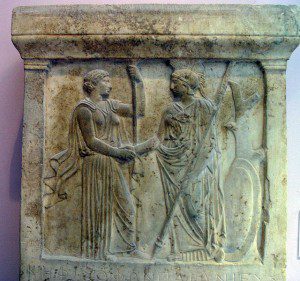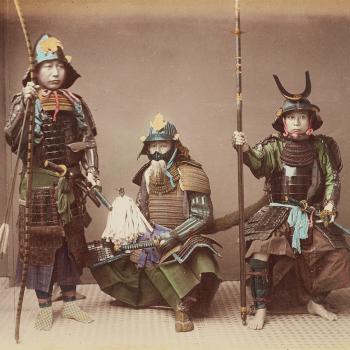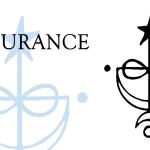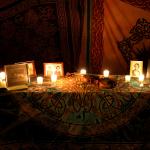
How can one create an environment that discourages Antagonists? In many respects the Pagan structure and community is a fertile breeding ground. In his excellent book Antagonists in the Church: How to Identify and Deal with Destructive Conflict, Kenneth C. Haugk details ways in which to prevent the growth of Antagonism within a church structure. Some of them are effective for us; some less so. In this final article in my series on Antagonism, I will detail the special problems that Paganism faces in fighting Antagonism, summarize Haugk’s suggested methods and where possible, suggest alternatives. Please note that my cautions and suggestions apply equally to the Polytheist community, if you consider that community separate from the Pagan community; and because it’s newer, and in many ways even more individualistic than other Pagan paths, these weaknesses are even more pronounced there.
Pagan Community Weaknesses
Issues With Authority
Pagans don’t like the idea of “authority,” and so we have numerous vulnerabilities that make it challenging for leaders to exert authority in fighting Antagonists. Some include:
Innate Mistrust: We tend towards anarchy, and harbour innate mistrust of anyone in a position of leadership. So when Antagonists start to spread rumous about the people who are serving in a leadership capacity, we find them really easy to believe. Often we swallow the most blatant lies hook, line, and sinker, just because we’re naturally disposed to favour the underdog. Truthfully, our leadership does not in any way have the power that leadership outside of our community does, but because we’re used to seeing leadership as controlling and abusive, we don’t tend to see our leaders as “abused parties,” no matter what actually happens.
Lack of Centralized Leadership: Since most Pagan groups have no clear lines of authority and leadership, it makes it almost impossible to appeal to the leadership for help in dealing with the problem; and it makes it almost impossible for people in positions of leadership or authority to enforce their decisions.
Close Friendships Between Leaders and Non-Leaders: You might think that our tendency to not divide ourselves into leaders and followers would make it more likely that we would know when an Antagonist was lying or rumourmongering, as we would be inclined to support our friends. But of course, the Antagonists have probably become our friends too. In reality, familiarity breeds contempt. We don’t respect our leaders as much because we know they’re fallible. We probably saw them get drunk at a party and say something stupid at least once, so we don’t believe their reputations are unassailable.
Many Pagans are opposed to the idea of leadership and authority on principle. You may be wondering whether I feel it’s necessary to compromise that principle in order to resist Antagonism and build group stability? Well; no, not necessarily. Consensus-run groups can and do work as long as the lack of centralized authority is compensated for in other ways that build group cohesiveness. The problem is that it usually isn’t. That’s mostly because we tend to be trusting people who want to believe the best in others. That’s a good thing. Unfortunately it means that many of us simply relax any existing restrictions or make allowances we shouldn’t, which frays the edges of our safety blankets.
Structural Vulnerabilities
In many ways, our very organizational structure (or, shall I say, lack thereof) makes dealing with Antagonists more difficult than in other faiths:
Few Organizational Procedures: Because we are individualistic and we try to balance individual needs, we usually do not have established policies or organizational procedures to create a buffer between ourselves and personal attack. It’s also easy to appear unfair because we often do treat people differently out of respect for their individuality; and that can be twisted to serve an Antagonist’s interests.
Lack of Effective Discipline: No Pagan likes authority, and the idea that there might be disciplinary methods leveled against us is something that we like even less. So we often have no means by which to demonstrate a refusal to tolerate an Antagonist’s behaviour. An Antagonist will just keep pushing until somebody stops them; and usually, no one will.
Isolation & Cliques: Pagans band together into small, isolated groups. So when an Antagonist is expelled from one coven or grove, it’s easy enough for them to find another one; one which probably has heard nothing about the trouble they’ve caused or the problems other groups have experienced. Because we also band into cliques, a certain degree of high school-esque politics enter into the equation, where the current “cool kids” may embrace the Antagonist and marginalize a victim.
Oathbinding & Secrecy: This can be a real problem. Many of us are in Oathbound covens or traditions; which means that much of what we do remains a secret from outsiders. This immediately isolates the group from the outside world. Because many of us, especially new coveners, are confused by the meaning and purpose of Oathbinding it is often abused by Antagonists; which can lead to truly dangerous situations for the people being abused.
The original purpose of Oathbinding was to protect the practice of one’s faith from those who would seek to harm it or who wouldn’t understand it. I would argue that in a day and age when Witchcraft and Paganism are no longer illegal and have achieved some degree of social acceptance, there is less need of this than there used to be, and less of a coven or tradition’s work and material should be considered Oathbound (though, of course, some areas are safer than others, so YMMV). So if it doesn’t serve that purpose, it shouldn’t be Oathbound.
Oathbinding is also frequently confused with the tradition of confidentiality within coven. Like a support group, often what happens in coven is meant to stay in coven. However, even legal clergy are required to break confidentiality in order to prevent someone from hurting themselves or others. If a crime comes to their attention, clergy are required to report it. I would think that requiring more confidentiality than that of your coven members would be cultish and abusive, and certainly not every aspect of every single covener’s life should be bound by this.
This tradition of secrecy leads to a harmful tendency to attack whistle-blowers in our community. We blame the victim for making our dirty laundry public, rather than blaming the abuser for creating the problem. We need to stop this. I can’t say that firmly enough.

Psychological Vulnerabilities
Pagans, collectively and as individuals, also have psychological vulnerabilities that make us easier prey for Antagonists. The New Age community shares many of these vulnerabilities:
Mental Illness and Neurodiversity: As I’ve said before, according to the Pagan Census, we have more than our fair share of people with psychological disorders; mostly minor neuroses, but also a variety of mood and personality disorders. I have postulated that it’s because Paganism offers healing and validation in ways that other religions often don’t. This complicates the way we relate to each other considerably. Some groups choose to deal with this by developing discriminatory exclusionary policies, but most of us try to work to be inclusive.
But to be blunt, if all of our neurons aren’t firing quite right, it creates some problems. One is that we who have such a diagnosis often doubt our own instincts when it comes to sensing that something isn’t right. As a result we are easily gaslit, which makes it worse. A second issue is that often when we do speak out, we are not believed. And a third is that, of course, people with mental illness can be irrational and abusive, and trying to deal with the situation rationally often serves no purpose. Many of us may never have even been diagnosed, and so are completely unaware of a potentially harmful bend to our thinking.
How can we help to mitigate this without being exclusionary? One way is for those of us who do suffer from mental illness or neurodiversity to keep this in mind in our dealings with people. We should also have someone that we can discuss goings-on in the community with who can serve as a “reality check.” If you can’t do this with your loved ones, do it with a support group or even someone online. Maybe you’re seeing things through a smoky filter; or maybe someone is gaslighting you, and having a confidante is a good way to help figure out which.
Within a broader sense, this article at Witchvox offers a toolkit of helpful suggestions also.
Countercultural: Because we are a countercultural movement, we don’t respect any of the time-honoured methods of dealing with problems. Furthermore, being outsiders by nature, we create an isolated community for ourselves in which tempests arise in teapots, because our whole world is so small that every minor issue is amplified. It’s not really that we look for drama, it’s that explosions are created from over-compression.
Lack of Clear Boundaries: Because most of us have been excluded and abandoned when we most needed someone to accept and embrace us, we are incredibly reluctant to do it to anyone else. This leads to a whole community of co-dependence. But developing healthy boundaries, and being willing to assert them, are skills that we who do suffer from such issues often lack. For those of us in covens, “Perfect love and perfect trust” is an ideal that is often only achieved for a brief moment of connection, or after sharing great adversity or several years of effort in building relationship, and we Pagans tend to expect it just because we’re together in a Pagan group. We should no more expect that than we would expect it from our co-workers, because people are people are people, and there’s nice and nasty in all of us.
Curse of Pagan Niceness: We never want to talk about the elephant in the living room. Because most of us have been considered “weirdos,” or because many of our practices have been negatively judged out of context, we don’t want to speak ill of anyone else. Because our community is so small, we don’t want to lose anyone. As a result, we don’t want to speak out or rock the boat, even when we strongly disagree with something or sense real trouble. So Antagonists just keep abusing us, but because they’re smiling, we let them get away with it. Especially in situations when the whole group should collectively be rising up in anger. Again, we are more likely to be angry at the whistle-blower. It would go a long way if the collective membership of our groups would be as willing to stand together and speak out against abuses by our own, as we seem to be to protest in the outside world.

Haugk’s Guidelines
Dr. Haugk gives us some guidelines to help create an environment that prevents Antagonism. Some of them will work for us; some won’t.
The Ones That Will Work
These are the techniques that Haugk suggests that I think should be relatively to implement and maintain within Paganism:
Make Sure You Have Functional Feedback Channels. Build ways in which people can offer constructive criticism (or praise) for what goes on in the group and how things are handled. Is there a suggestion box? Do you let people stay behind after Esbat to speak with you about issues they may have? (If so, don’t talk to them about it at other times during the week.) Do you prefer that people phone you at home in the evening rather than meet face-to-face? (If so, don’t deal with complaints at other times.) Antagonists who refuse to use perfectly functional channels identify themselves as troublemakers.
Have Clear Job Descriptions. If it is clear what each person’s responsibilities and rights are, it is more difficult to stir up dissent. If the Summoner’s job is clearly to contact people for the next Esbat, let him do it and don’t micromanage him. If the students are to pay for the expenses accrued by the teacher then make that known. Let everyone else know what everyone’s individual job description is too. Chances are that there is so much do to that at least one important job will be available for every member of a coven to take on. Larger groups will need organizational committees and volunteer groups,
Anticipatory Socialization. This is psychological shorthand for “Let people know what you are planning to do before you do it.” People resist change, especially when it comes to things associated with their religion. Carefully prepare the way before implementing transformations. Sudden changes can awaken antagonists.
The Ones That Won’t
These techniques I simply can’t see being established in any meaningful way in most Pagan groups, and we will have to consider alternatives (or live without them):
Follow Established Policies. Clear procedural guidelines make it more difficult for Antagonists to create problems. Except that Pagan groups rarely have such things. I’ve also had the experience of people completely ignoring the procedural guidelines that were established on the grounds that their “wisdom and experience” trumped the existing rules. So use this if you can, but chances are you won’t be able to.
Establish Discipline That Works. Discipline? For Pagans? Who would we allow to have enough authority to discipline us? Even lineaged traditions only have respect for their upline; the upline has no authority over them (at least, not once one is a High Priestess or High Priest). The best we generally have is sanctioning and exile. This is a problem without an easy solution, because Antagonists thrive where there is no discipline. If we want to remain so libertarian then we need to find other ways to address this problem; or work harder to build the other suggested techniques.
The Ones That Might; or Should, Work
These techniques are ones that I believe should be possible, in most situations, to establish, but I find that Pagans in general tend be highly resistant to them:
Establish a Broad Base of Responsibility. When power is carefully distributed between a group of people as opposed to one person it makes for more difficult targets. However, our small groups don’t often lend themselves to doing this; and even when they do, we often end up in Little Red Hen scenarios. Don’t let people put you in that position, and delegate whenever you can.
United Front. Mutual respect and support among the leadership (if not always agreement) is the best way to discourage Antagonists. Unfortunately, a lot of us do not seem to have developed healthy conflict resolution skills, and politicking and back-biting almost seem to be a Pagan way of life. This makes me sad, because I know we can do much better. At the very least if we would provide support, and speak out against people we know are doing wrong, that would go a long way.
For Church Staff, a Support Group. If you have a large group, establish support groups for people who are sharing the responsibilities, so that they might be supportive to one another, offer moral support and constructive criticism, and work towards being more effective in their roles.
Within a coven setting this is less possible because of the relative sizes of the groups. In a lineaged tradition you might be able to talk to the people in your upline, who may be able to mentor and advise you. But if you don’t have that, consider regularly opening discussion with some of your coven-leader peers. At one time there was a Yahoogroup that was called “Canadian Coven Leaders” that was particularly helpful. I haven’t seen anything like that in many years; perhaps it’s time we created something similar.
Ultimately the keys seem to be to build bridges instead of walls, stand up against things we know to be wrong, create better resources, communicate more effectively than we have been doing; and for Pagan leaders and facilitators, we should be supporting one another rather than competing. With this in mind, I hope that we will evolve better ways to deal with Antagonism, now and in the future.
Previous: How to Deal with Antagonists in Paganism
First: Antagonists in Paganism
Like Between the Shadows on Facebook and never miss a post!

















